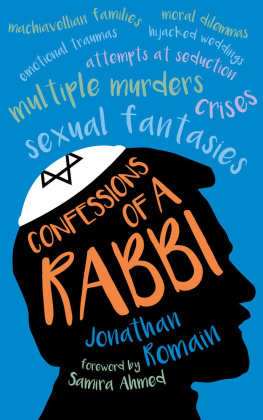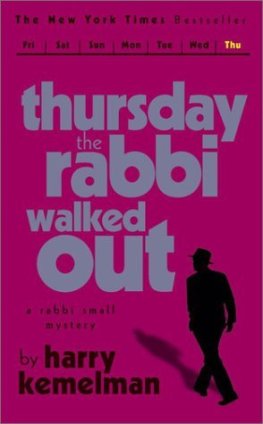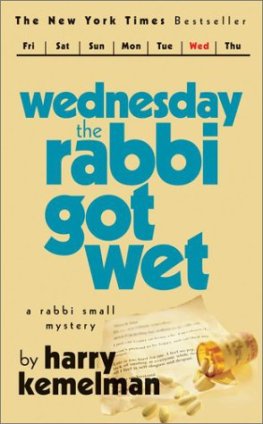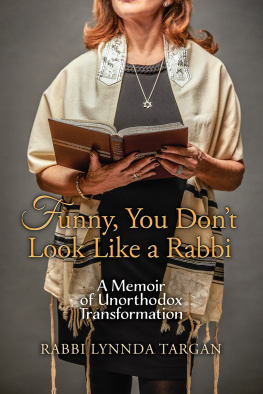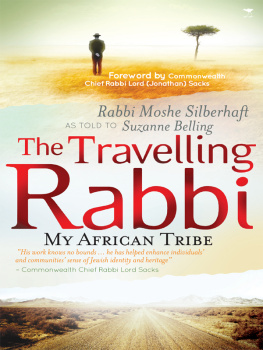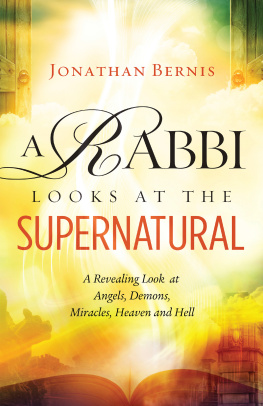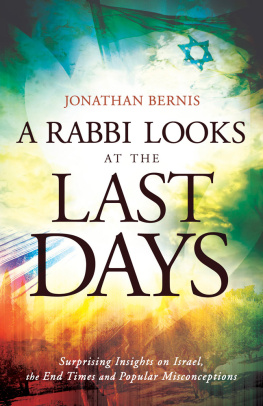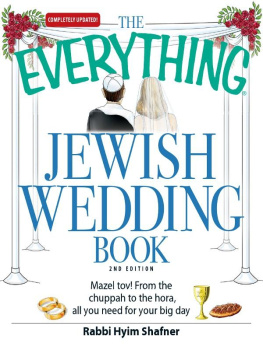S hould the secrets of the confessional stay secret? As it happens, the confession box is a Catholic institution and we do not have it in Judaism. Still, I have protected individuals by changing their names where appropriate, but the episodes themselves are all true. The real revelation is not the identity of those written about, but whether we recognise aspects of ourselves in the incidents, be it with a wry smile or sense of alarm.
Some of the stories relate to my community at Maidenhead, but most are from people I have met elsewhere through other involvements, whether as police chaplain, prison chaplain, working nationally with mixed-faith couples or the countless individuals throughout the country who write to me about their situation following broadcasts on the BBC they have seen or heard.
The well-used phrase you couldnt make it up if you tried applies to many of the cases, whether they be the examples of appalling recklessness or instances of magnificent endeavour. As the Yiddish saying goes, life is with the people, and there is no greater source of richness than the astonishing escapades that people get up to.
As for my own community, I can attest that although members of Maidenhead have their share of personal problems, the community itself lacks any serious offenders or major fault-lines. Comprising over 800 households, it may not be an oasis of perfection, but it is certainly a joy to be part of.
Jewish terms in italics can be found in the Glossary at the end of the book.
The temptress
I had known Deirdre for some years. Her husband, Patrick, was an Irish Catholic, but totally lapsed and never went to church. In fact, he knew me better than the local priest and was often at the synagogue on a Sunday morning when he brought their two daughters to the Religion School. It was a good marriage and they seemed a typical happy family. The story then began to take on a tragic element that came out of the blue for them, but which will be horribly familiar to many others who have experienced something similar. He began to feel unwell, enduring constant headaches; the doctors suggested various remedies, all of which failed. Eventually it was decided to investigate worst-case explanations, and, sadly, a brain tumour was discovered: inoperable. He was kept as comfortable as possible through medication and, with the help of Macmillan nurses, his wife ensured that he was looked after at home, never spent a night away from her, and he died in his own bed a few months later.
Throughout this period, she had been fighting on all fronts supporting him, his parents, their two girls, nursing him, keeping home life going as normally as possible for the sake of the children, and dealing with her own grief at the impending loss, not to mention the financial implications she was facing. I rang her the week after the funeral, then again a month after that. On both occasions she said that life was tough, and that, after giving such intense care physically and emotionally she was drained, but she was functioning and knew she would be OK. I told her to get in touch if ever she wanted to chat about matters or if she hit a really difficult period.
A few months later, Deirdre rang. Could we meet? We fixed a time and she came round to the synagogue office. She had always been an attractive woman, and although she had neglected her personal appearance when her husband had begun to decline, she was back to her old self: smartly dressed and expertly made up. It was a small office, with space just for a desk and some old bookcases, not the larger room I have now, which has a chatting area with some comfortable chairs opposite each other that create a more suitable atmosphere for personal conversations. With hindsight, I was very grateful for just having that impedimentary desk at the time. I sat one side of it and she the other. We chatted generalities for a while, me asking about her work and how the girls were adjusting, and then she suddenly interrupted the flow and said: I want to talk about me. That was what I was expecting, so no surprise there, but I did notice that she said it in a very unusual way and was looking at me very intensely. Its hard being a widow, she continued. I nodded sympathetically, assuming she meant being alone or being the only adult bringing up the children. Its not so much being alone or being the only adult bringing up the children, she said, as if reading my thoughts, although she was saying the words in a semi-breathless way, very slowly and pointedly. No, the problem is being a woman alone the breathlessness turned into heavy breathing a woman who needs a man.
I began to sense that this conversation was going into a direction I might find difficult. This was confirmed when, without taking her gaze off me, she undid the top button of her blouse. I made some incoherent remark about how much must have changed in her life. She leant back in the chair and opened her legs as wide as the skirt would allow. Yes, this was definitely heading in the wrong direction. But, at the same time, there was no denying that she was attractive. When I was a teenager, I read an article that claimed that whenever a man saw a woman, part of his brain always wondered what she would be like in bed. I remember being indignant at the time, thinking how crude and sexist this was, and totally alien to my teenage idealism and my belief in the purity of true love. Maybe the article had a point, however, and we blokes are genetically disposed to judge women in that way. Of course, what counts is what we do about it, and hopefully the more evolved, less Neanderthal part of our brain stops us from clunking women over the head with a club and dragging them by the hair into our cave. Instead, we value a person for their character, respect their individuality and judge them according to whatever talents they have. Meanwhile, Deirdre had undone another button and her breasts were heaving.
The one thing I knew I was not going to do was what she clearly wanted for me to leap over the desk and take her in my arms. But what to do instead? Tell her I was appalled and disgusted (albeit mildly flattered) and send her packing? But that would not help her self-respect at a time when she was in emotional free-fall, while it would also mean she was unlikely to ever come back and so would lose the support that came from being part of the community.

